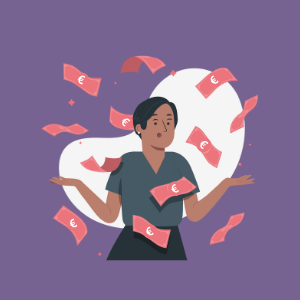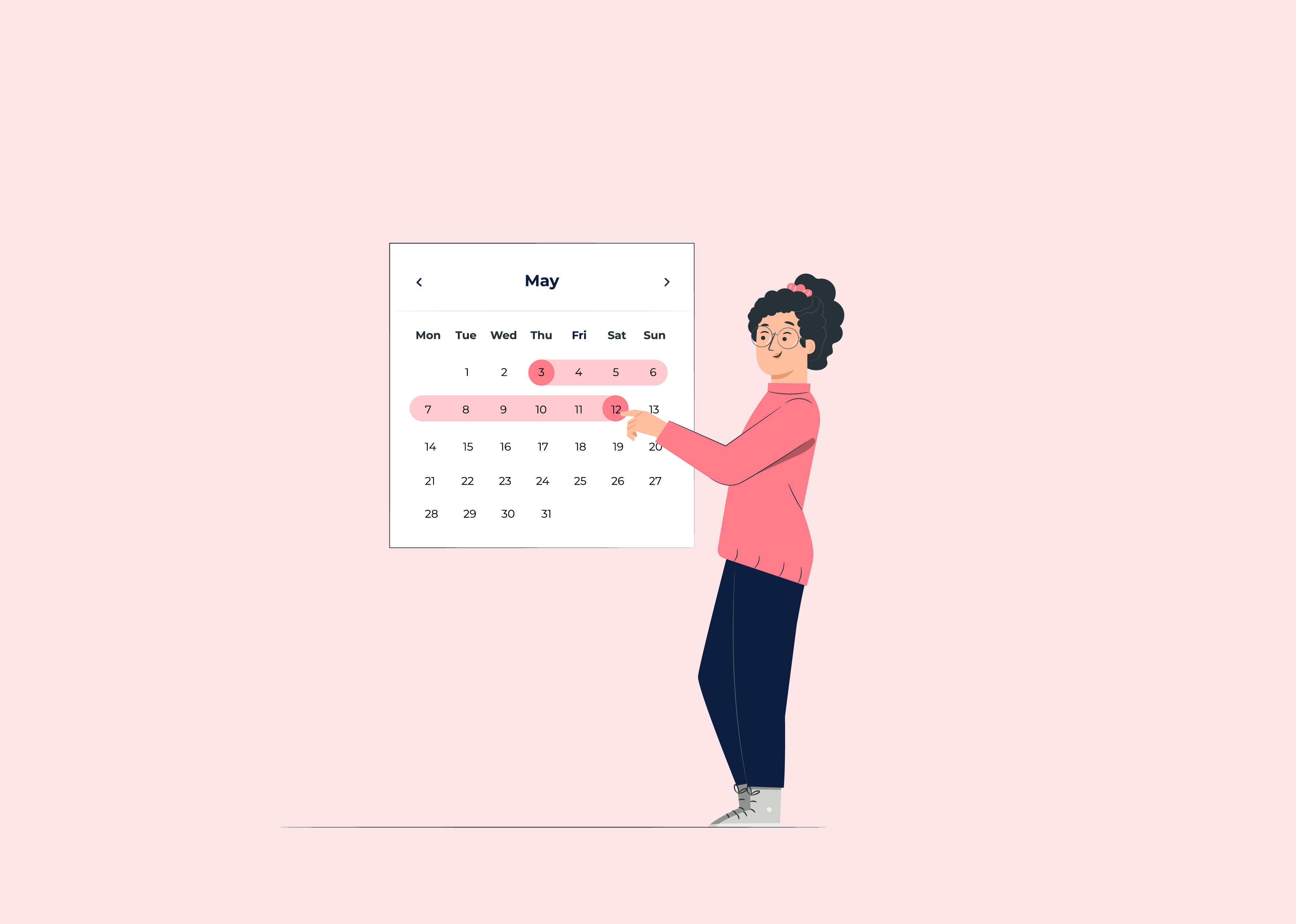
If you employ people in the Netherlands, then it is important to know and understand your responsibilities when it comes to granting leave. If you are unsure of anything, there is no need to worry – this article has all the answers to your questions about employee leave in the Netherlands!
How is annual leave calculated?
Annual leave in the Netherlands is accumulated proportionally to the amount of time you work. For example, for full-time employed people, the required minimum of leave is 4 times 40 hours per week. Therefore, the calculation is as follows: 4 x 40 = 160 hours of entitled annual leave per year. While these are the required minimum number of hours, employers may choose to offer more time for holidays.
People who work part-time, or on zero-hour contracts, are also entitled to 4 times the number of hours worked per week. Annual leave is also accumulated while on certain types of leave, such as illness. Read more about the different types of leave in the Netherlands here.
How much annual leave am I entitled to?
The minimum amount of leave a person employed in the Netherlands is entitled to is 4 times the number of hours worked per week, including public holidays. For example, a person employer full-time in the Netherlands is entitled to 160 (4 x 40) hours of annual leave per year, in addition to any public holidays. A person employed part-time in the Netherlands is entitled to 80 hours of annual leave per year (assuming they work 20 hours per week).
Can annual leave expire?
It is very likely that annual leave accumulated in the Netherlands will expire 6 months after the end of the year. In most cases in the Netherlands, annual leave expired in June of the following year (6 months after the end of the year). Annual leave offered by employers in addition to the required minimum will expire 5 years after the year they were accrued.
Can an employee quit without notice?
In most cases, an employee in the Netherlands with a working contract cannot quit without providing at least one month’s notice. The only exceptions that exist are for people employed with a zero-hour contract, or during an employee’s probation period. The amount of notice an employee must provide their employer in order to quit may also be longer than one month (but no longer than 6 months) if it is previously agreed upon by both employee and employer.
Can annual leave be paid out?
It depends. An employee’s required minimum annual leave is not entitled to be paid out, unless the employee is dismissed from their role. Instead, it carries over into the next year. However, annual leave that is offered in addition to the required minimum can be paid out instead of being used as time-off.
Can an employer place an employee on unpaid leave in the Netherlands?
In principle, an employer cannot force an employee to take a form of unpaid leave without agreement from the employee. One example could be in the event of an employee wishing to take an extended leave of absence, or sabbatical. If this absence is intended to be unpaid while the employee is on a contract with the employer, this needs to be discussed and agreed upon between both parties. Without explicit agreement in place, continued employment is assumed to always be paid. Read more about the consequences of unpaid leave here (in Dutch): https://www.rijksoverheid.nl/onderwerpen/arbeidsovereenkomst-en-cao/vraag-en-antwoord/gevolgen-van-onbetaald-verlof
When is annual leave paid?
Annual leave accumulated by employees working in the Netherlands is usually never paid out. People working in the Netherlands are generally expected to take time off work in order to utilize their leave. However if an employer offers more annual leave than the required minimum amount, the employer may allow the additional leave to be taken as payment in lieu of time-off. The only exception is in the event an employee is terminated. At that point, any unused leave they have at the time of termination will be paid out.
Can employees take leave during the probation period?
Probation periods usually occur within the first few months of an employee’s contract with a new employer – therefore it is not common to take leave during the probation period. A delayed start date for the employee may be considered a better alternative. However, the decision to allow an employee to take leave during the probation period is ultimately made by the employer.
Can an employee resign while on leave?
It is possible for employees to resign while they are on leave. An employee in the Netherlands may resign from their position at any point, as long as they provide adequate notice.
Does an employer have to pay for COVID leave?
Employers in the Netherlands are responsible for paying an employees salary while they are ill, or in the event of an emergency. There is no specific leave scheme in the Netherlands for employees who fall ill with COVID or need to take leave due to the impact of COVID.
Can annual leave be carried forward?
Yes, annual leave can be carried forward in the event the leave is unused during the year it is accumulated. The required minimum amount of leave can be carried forward up to 6 months after the year it was accumulated, while additional days can be carried over up to 5 years.
What is the difference between annual leave versus holiday allowance?
Employees in the Netherlands accumulate leave throughout the year in proportion to the amount of time they have worked. In addition to this accumulation of leave, most employees in the Netherlands are entitled to a holiday allowance which is paid out to equal 8% of their gross annual salary. The spirit behind the holiday allowance is to give employees in the Netherlands funds to spend while they take their annual leave.
What are the different types of leave in the Netherlands?
There are 9 different types of leave that are officially defined in the Netherlands, according to the Dutch government. The different types of leave are: Pregnancy/maternity leave, partner/paternity leave, parental leave, adoption and foster leave, short-term care leave, long-term care leave, emergency leave, unpaid leave, and special or extraordinary leave.
more news

Netherlands: Paid versus Unpaid leave
04-08-22
Paid leave differs from unpaid leave in the way that the employee continues being paid during a planned absence from work, whereas unpaid leave is taken when a person has no other way to take time off. Paid time off ...

7 types of employee leave in the Netherlands
31-03-22
In the Netherlands, we have some of the best procedures that help us maintain a strong work/life balance. So how do we achieve this? We’ve considered all of the reasons an employee may need to take leave from work and ...